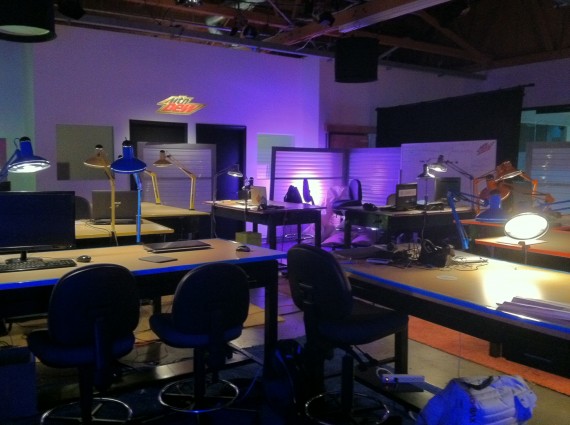
firehose
Shared posts
I've noticed a lot well if not some feminist content. I as a male don't really understand exactly how important feminism is in society so please don't be offended. I don't really think feminism is that important. And I'm just providing an opinion.
|
Courtney
shared this story
from |
"I as a dog don’t really think computers are that important."
"I as a hairbrush don’t really think the metric system is that important."
"I as a remote control don’t really think fish are that important."
"I as a human-hair wig don’t really think house paint is that important."
"I as a giraf, dorp r eally thunnk aalsmd ca; alsmca;o ajfroprwaoasgfa;fajsd;afsalkdasserhshdyijrsekoaa
Feds threaten Oregon's wine growler law, face wrath of congressional delegation : (x-post /r/wine)
 |
submitted by Audio-didact [link] [15 comments] |
Fort Hood shooter Ivan Lopez had mental problems, saw no combat in Iraq
MIDICSV
firehosewhoaaaaa
This page describes, in Unix manual page style, programs available for downloading from this site which translate MIDI music files into a human- and computer-readable CSV (Comma-Separated Value) format, suitable for manipulation by spreadsheet, database, or text processing utilities, and re-encoding processed CSV files into MIDI. No information is lost in transforming a MIDI file to CSV and back.
"Olde English Coffee House" vibe... where does this exist?
firehosemeanwhile, in Portland
To be clear I'm not looking for a coffee shop.
What I am referencing is a location where many different types of people gather and have discussions on current events, philosophy, and other intellectual concepts where social status / age / religion are not homogeneous.
I'm sick of coffee shops being filled with people heads down in their laptops or other devices, and pubs and breweries being filled with people looking to get trashed.
I seek honest intellectual stimulation, with a give-and-take of ideas, and not bull headed arguments. If such a place exists in modern America I'd have to think Portland is a great place to start looking.
[link] [9 comments]
For older Americans, tablets and e-readers are the new cell phones with huge buttons
More Americans age 65 and older own either a tablet or an e-reader (27%) than own smartphones (18%)—the reverse of the proportions for the general public, according to the Pew Internet Project’s latest study on how people access the internet.

Among all US adults, more than half (58%) own a smartphone, while 50% own a tablet or e-reader.
A number of factors probably contribute to these numbers. One could be that older Americans are less likely than young people to see the value of paying for the expensive monthly plans that smartphones in the US generally require for data, texting, and talk. The other is simply that smartphones, with their high resolution “retina” displays and tiny type, just aren’t that friendly to older eyes.
(For those of all ages who are tired of squinting at their displays, by the way, modern smartphones have a setting to increase the default size of the type they display.)
Making Kaylee’s Fluffy Pink Dress
firehosevia Bunker.jordan

When you normally wear grubby overalls, a fancy dress is a nice change of attire and Kaylee Frye’s dress from “Shindig” is one of the most memorable costumes from Firefly. I couldn’t imagine re-creating all those ruffles, but cosplayer Fire Lily put the entire gown together for $160. She used dupioni silk and lots of white sheer voile fabric – yes, she dyed all the pink and peach layers:
The second hard part was the skirt – although the costume was said to have used pre-made silk chiffon hoops, chiffon is entirely too flimsy a fabric to get the correct drape for the ruffles, in my opinion. I opted to use a white sheer voile fabric and dye the peach and pink layers. Each layer of ruffles is edged with rolled hems that I had to run through my sewing machine twice using a zig-zag stitch (omg took forever!). I then sewed each layer onto a plain cotton sheath skirt and attached it to the bodice.
Read more at Fire Lily Cosplay’s blog.
Open Source Hardware Hero: “Ultimaker 2″ Printer Source Files Available Online #3DThursday #OpenHardware #opensource #3DPrinting
firehosevia Bunker.jordan

Keeping true to its commitment to open hardware and potential for sharing source to revolutionize desktop manufacturing, Ultimaker has finally been able to launch the “Ultimaker 2″ Printer Source Files:
From day one, we have been recognized for our open source culture and we feel that open source brings the field of 3D printing to a higher level. It is our firm belief that sharing knowledge does not mean losing knowledge. On the contrary, we learn from each other, inspire each other and use each other’s knowledge to create even better products and develop impressive innovations world-wide.
What sets Ultimaker and YouMagine apart is the sharing philosophy. Since the very first time Ultimaker saw the light of day, we have supported open source. We shared our source files and our community gave us valuable feedback. Our YouMagine platform is not only a place where we share our information, it is also a social place, a community, where users can create profiles and start collaborations with other makers. Many contributions by our community can be found in the Ultimaker design as it is today.
The day has come that we are launching the drawings of the Ultimaker 2 and share them with the world. We are excited to see what kind of ideas, innovations, improvements and products this will lead to. We will continue to share our knowledge and experience and look forward to achieving many remarkable 3D printing goals together. Or in the words of Martijn Elserman, co-founder of Ultimaker: “Since its introduction, the Ultimaker 2 received a very positive response and its demand has been beyond expectation. This strengthens our confidence in our philosophy to innovate and improve together with the worldwide community of 3D printer enthousiasts.”
Read More. Get the Ultimaker 2 source files here.


Gina Carano Talks Acting, Wonder Woman, and Her New Film, In The Blood
firehose1. how does everyone keep forgetting that Wonder Woman's already been cast
2. she-hulk. 100%
WATCH: Bruce Timm's "Batman: Strange Days" Short Released Online
Is Verizon or T-Mobile better? A British startup has some answers
firehose'if you’re not streaming music and videos, it probably doesn’t matter much either way'

The battle between Verizon and T-Mobile for US subscribers is getting pretty ugly. Verizon has for several months been running television ads mocking its rivals’ paltry network coverage. The ad claims that Verizon’s LTE network, the fastest of its data networks, covers more of America than anybody else’s. T-Mobile hit back in March, with an aggressive ad saying “Fold up your old map, Verizon.” And it announced that it had ”taken legal action demanding that Verizon cease and desist the carrier’s network map advertising.”
But while brand wars can be entertaining, they don’t help consumers much. Which is the better network? OpenSignal, a London-based start-up, looked at the data it collects from its 100,000-odd users on LTE networks in the United States and came to a firm conclusion: It depends.
Verizon is right to claim its LTE network coverage is the best of the lot. It covers more of the population; even T-Mobile admitted in a press release last month that its HSPA+ network—a slightly slower standard than LTE—covers only 230 million Americans to the 303 million covered by Verizon’s LTE. (T-Mobile didn’t say how many people its own LTE network covers at the moment, though it promises to reach 250 million people by the end of the year.)
OpenSignal uses a rather different measure: What proportion of the time are subscribers actually able to use LTE on their networks? Here, Verizon emerged the clear winner. Its average user with access to LTE can connect to the network more than 83% of the time, compared to just 61% for T-Mobile.

Yet what Verizon doesn’t tell you is that while its coverage may be the broadest, it offers much lower average speeds.

So which network is better? It depends on where you live and what you use your phone for. Where T-Mobile doesn’t offer LTE, Verizon may be the better choice for people who want fast mobile broadband. But where it does, T-mobile has consistently been the fastest over the past year. And if you’re not streaming music and videos, it probably doesn’t matter much either way.
Paul F Tompkins and Reggie Watts Added to Bridgetown Comedy Fest Lineup
firehoseReggie Watts!!!

When Bridgetown released their initial lineup a couple weeks ago, we crossed our fingers that a few big names would still be added to the list, which was heavy on promising up-and-comers but a bit light on flashy headliners.
WELL, IT HAPPENED! Reggie Watts and Paul F Tompkins were added to the lineup yesterday. Tompkins is bringing his Dead Authors Podcast (yay!) for a one-night gig, and Watts will presumably just be his usual crazily brilliant self.
The fest is Thurs May 8-Sun May 11; tickets here.
Google’s sneaky new privacy change affects 85% of iPhone users—but most of them won’t have noticed
firehosein the shitter

“What Google really wants is for everybody to be signed in to their Google accounts all the time,” a Google insider told me in passing last month.
Around the same time, the official Gmail blog put up a 205-word post explaining the latest update to the Gmail app for Apple devices that run on iOS 7.
The app now fully supports background app refresh, which means your Gmail messages will be pre-fetched and synced so they’re right there when you open the app—no more annoying pauses while you wait for your inbox to refresh.
That’s great! But wait, what’s this:
The Gmail app also now supports sign-in across Google iOS apps, including Maps, Drive, YouTube and Chrome. Sign in to one, and you’ll be signed in to all (this also works for signing out). So you won’t have to type in that 27-character password or retrieve your 2-step verification code every time you navigate to another Google app. You may need to re-login after you update the app, but then you’ll be all set.
That sounds convenient. And it is—but not for you, for Google.
To understand why, you need to look back to the last time Google integrated sign-in across services. That’s a good indicator of what Google has planned for its—and your—future.
A long time ago on an internet far, far away
Until two years ago each of Google’s 70-odd services—from Gmail to Google Docs to Picasa photo sharing—had its own privacy policy. In January 2012, Google announced that it would combine 60 of them into one single privacy policy. This too was cloaked in user-friendliness:
This approach [of separate privacy policies] is somewhat complicated. It’s also at odds with our efforts to integrate our different products more closely so that we can create a beautifully simple, intuitive user experience across Google.
The real purpose however wasn’t to make your life easier, but to simplify Google’s tracking of it:
What does this mean in practice? The main change is for users with Google Accounts. Our new Privacy Policy makes clear that, if you’re signed in, we may combine information you’ve provided from one service with information from other services. In short, we’ll treat you as a single user across all our products, which will mean a simpler, more intuitive Google experience.
Regulators—who Google said in that post had ”been calling for shorter, simpler privacy policies”—quickly realized what the changes meant. European authorities opened an investigation into the new policy, calling it a breach of EU law. More than two years later, many cases remain unresolved. France and Spain have both slapped fines on Google, though the combined €1.05 million ($1.45 million today) is roughly as much as the revenue Google will make in the time it takes you read this article. The investigation is ongoing in another four countries, including Germany.
It doesn’t matter. Google’s privacy policy remains unchanged. Google’s total revenue from advertising jumped from $36.5 billion in 2011 to $43.6 billion in 2012 and crossed $50 billion in 2013.
Cut to the present day
By unifying its services on the web, Google strengthened its grip on its users data. But it began to lose its hold, again, as smartphones took off. When not using their phones to talk, smartphone users spend 86% of the time in apps, and just 14% in the web browser. So someone might, for instance, be signed in to check Gmail, but be effectively anonymous to Google when watching videos on YouTube.

Keeping you signed in on all apps fills this gap in Google’s knowledge. But just as importantly, it makes a big difference to how the company measures whether ads—the lion’s share of its business—are working.
For example, you may have seen an ad for something on YouTube on your phone, looked it up using the Amazon app on your tablet, and eventually bought it on your computer. Unless you were logged into YouTube when you first saw the ad, Google can’t tell if the sale was a result of the ad, and can’t prove to advertisers—who spend half their mobile budgets with Google—that the money was well spent. It also can’t tell if it’s shown you the same ad over and over again to no effect—information it could use to target ads better.
This is a problem the entire online ad industry faces. But few have as much to lose as Google does, or the clout to push users around. Most companies would be lucky to get one app on your phone’s home screen. Google has a whole mobile operating system, Android. And even people who use Apple rather than Android devices can use a lot of Google apps on them—Google Earth, Drive, Hangouts, Translate, Blogger or even, yes, Google+ (which exists only to serve as the company’s data gathering tool). Hence its move to unify sign-in across them.
This change affects only Apple users who have upgraded to iOS 7, the latest version—but that’s 85% of iOS devices. They no longer have the ability to remain anonymous as they watch videos on YouTube or navigate their cities using Google Maps.
Back to the future
Google has learned its lesson from the privacy policy fiasco of 2012. Instead of a grand announcement, publicity campaigns or a post on the official Google blog, it mentioned it in passing, without explaining what it means to be signed in to everything all the time. (It’s also telling that the announcement came tucked away in a note about an incremental change to the Gmail app, though implementing such a change would have required work outside that app.) By the time of publication, Google had not responded to a request for comment on why it had kept the announcement so low-key.
The change seems to have gone unnoticed by privacy campaigners and regulators. Tech blogs have reprinted the press release and a few users appear to have belatedly discovered it by accident, but without noting its full importance.
Google will be watching very closely to see if these voices of dissent grow. In interviews, ad agencies, ad-tech companies, data companies, and back-end login-service providers all tell me that login is the future. Google is best placed to force users to accept that new reality. And it is.
Broadcast trying very hard not to show any middle fingers. Broadcast is failing
firehosewelcome to amercia
21 years ago, an Oregon man started making classic guitars -- now he's in the legal battle of his life | OregonLive.com
Jack Charles Meussdorffer was in the sixth grade when he turned on “The Ed Sullivan Show” and saw the guitar that would become his passion.
"The Stones (were on) and Brian Jones was playing a teardrop. I thought that was the coolest-looking guitar I'd ever seen in my life," he said.
More than two decades later, after his own career as a rock musician, Meussdorffer set up shop in Clatskanie, Ore., and began making his own instruments, inspired by the one he saw Jones playing. But after building a reputation for 21 years as the maker of his trademarked Teardrop, Phantom and MandoGuitars, he’s now facing a lawsuit that threatens to topple his business.
On Sept. 3, 2013, the multinational company Korg Inc. and its affiliates filed a complaint against Meussdorffer and his Phantom Guitar Works company, seeking to cancel several of Meussdorffer's long-held trademarks and claiming "tortious interference" with the brand's own models. Meussdorffer and his legal team filed a counter-claim, and the case has slogged on ever since.
There is no assembly line in Meussdorffer’s Clatskanie workshop: it’s too cluttered with the tools and assembled pieces and wires he uses to hand-make his instruments. In a year, he’ll produce between 250 and 400 instruments styled after the seminal guitars introduced by the British company Vox in the 1960s. But Korg’s instrument production has threatened his sales. Its legal action could do much worse.
Korg's primary legal argument against Meussdorffer is that his trademarks, the Phantom and Teardrop names and shapes, have become generic and thus public domain. Eastern District New York Magistrate Judge Gary R. Brown found Korg's evidence for some of its claims "lackluster," but his advice for a preliminary injunction, which could halt either side’s production, recommended protecting only Meussdorffer’s Phantom trademark -- not the Teardrop, citing the trademark as "less distinctive." That was in February: the lawyers are still arguing about it, with another judge still to face.
Rock history recreated
The Vox guitars first showed up in the hands of the British Invasion bands. By the mid-1960s, groups from the Beatles and the Rolling Stones to the Hollies were using Vox amps and playing Vox’s signature guitar line, the Phantom.
Meussdorffer was born in Palo Alto, Calif., but spent his childhood in Portland. His father, a Stanford graduate, was a stockbroker, while his mother worked for the city as a map-maker. It wasn’t long after “Ed Sullivan” that Meussdorffer started playing in bands himself: his first was 1970s folk-rock act Sand. He joined Portland's Quarterflash in the '80s, bringing Vox instruments on the road as the band notched hits such as "Harden My Heart." But as handsome as the guitars were, they were a challenge to tour with. Vox, a small company that was overwhelmed by demand in the booming '60s, had outsourced its U.S. production to Italy, resulting in what Meussdorffer calls "poorly made" instruments that weren't up to his performance standards.
"They were technically wrong, the wrong scale," Meussdorffer said. "I could never keep it in tune. And it always occurred to me, someone should make a workingman's version of this guitar."
Meussdorffer left Quarterflash in 1984 to lead his own band, Mien Street, but the group didn’t pick up his previous act’s national steam. He ended up going to work for Akai's Jackson guitar line, where he gathered the skills to make a handful of his own prototypes, but he never lost his passion for the Vox guitars, which had ceased production entirely in the 1970s. Meussdorffer made it his mission to bring them back: He developed his instruments from the ground up, redesigning "nearly all" of the hardware and pickups. And musicians have embraced his work. Customers for his high-quality instruments include players such as John Mellencamp and the Decemberists' Chris Funk.
“John Mellencamp, I made eight guitars for that band,” Meussdorffer said. “I've done all the tooling and making all the correct knobs, I do every single screw, to make these things look like the original '60s guitars.
“I’m really, really into these things,” he continued. “I have the very first (12-string) prototype that I got from (British '60s musician and producer) Peter Asher, and I've really done a lot of research. Frankly, there wasn't anywhere else to go to do this correctly.”
For his part, Funk wasn't looking for nostalgia. He wanted a workhorse electric 12-string and he was hoping to buy local. He bought a Teardrop and has been playing the model ever since: Meussdorffer even replaced his copy when the Decemberists had some gear stolen.
“It’s the only electric 12-string I’ve had all these years with the Decemberists. I really like the neck on the guitar and the way it plays,” Funk said. “I liked that Jack's in Oregon. He was really available and supportive and friendly.”

A long and winding road
Meussdorffer and Korg have engaged in a legally complex relationship since the musician began making and selling the guitars in 1993. Vox fell into hard times after its '60s heyday, and Korg, founded in Japan in 1963, snapped up the company in 1992, seeking to capitalize on the brand's British Invasion legacy with amp and instrument reissues, including its current Apache line.
Unlike Meussdorffer’s consistent production, Korg has manufactured its versions only intermittently since acquiring Vox, ramping up in 2012 with the Apache models. One of these instruments is currently available at Urban Outfitters, marketed under the Phantom name in flagrant disregard for Meussdorffer’s trademarks. On its own site, Vox is less deceptive, crediting Phantom Guitar Works with the ownership of the Phantom and Teardrop names. Phantom Guitar Works' upscale models run from $750 to $999, but Korg's -- made in Asia, not Oregon -- are half the price, and Meussdorffer has policed his trademarks rigorously as the powerful company pushed into his market.
Apart from its Vox line, Korg makes an array of musical equipment distributed to hundreds of stores: it’s best known for synthesizers such as the MicroKorg. A private company, Korg Inc. does not release its sales figures, but its official website states it has 290 employees: Meussdorffer calls them a "$40 million company." Korg’s publicity department did not respond to multiple Oregonian requests for comment.
The pair’s relationship wasn't always contentious. Meussdorffer began his dealings with the company at the National Association of Music Merchants trade show in the '90s, where he debuted his instruments: in their first encounter, Meussdorffer even loaned Korg representatives his guitars to go with their vintage amps.
"They showed up to the NAMM show with their AC30 amplifiers and came to my booth and said, 'We're Korg and we now own Vox, can we borrow your guitars for our booth?'" he said. "And I said 'Sure.' We were getting along just fine."
Negotiations went back and forth for years. At one point, "they wanted to hire me," Meussdorffer said, and the two parties were discussing licensing before Korg filed its claims last year. He's been a staunch protector of his trademarks on the guitar names and designs, "painstakingly" digging through eBay listings to prevent the terms being applied to similar instruments. He sent out cease-and-desist letters, worried that Korg's editions would confuse customers.
"Korg got sick of it and now have decided I shouldn't have the trademarks," he said.
How did Meussdorffer register trademarks on another company’s vintage guitars? Quite simply, they were available: neither government records nor the case’s legal filings indicate the original Vox ever held U.S. trademarks on “phantom” or “teardrop” (a term Vox didn’t officially use in its '60s marketing), and with his own productions in place, Meussdorffer was able to successfully acquire trademarks on both names and body shapes for his instruments. His legal protections seemingly in hand, Meussdorffer was able to build a business that revived and improved the instruments for a new generation of players.
His trademarks are old enough to be incontestable, a legal status that protects against some but not all of the arguments against them. Lydia Loren, professor of advocacy and ethics at Lewis & Clark School of Law, said the design trademarks could still be under fire for functionality, which is the domain of patent law -- in other words, if the guitar shape has a functional capacity and not just a stylistic look, a trademark can't protect that -- while the name marks, as with the "less distinctive" Teardrop, can be challenged as generic if they're well-known beyond a specific brand. (Like using "Google" as a verb for searching, for instance.)
"That's the fundamental baseline for trademark law, making sure consumers don't get confused," Loren said.

No satisfaction
The legal drama comes with Meussdorffer at a personal crossroads. He said he's separated from his wife and faces the challenge of raising Max, his 14-year-old autistic son. (Another child, Jack, is in school at the University of Portland.) Meussdorffer also totaled his truck in a crash with a deer last year.
"The lawsuit in general is not the best for relationships," he said. "I'm holding up O.K. I feel like right is right. I'm not completely naive about it. I'm worried about it because of the amount of money these guys have… They can make my life pretty miserable because they can wait it out."
He wouldn't say what the suit is costing him, but said he'd taken financial steps with his attorney to "weather such a thing" as earlier negotiations with Korg turned unproductive.
Losing his trademarks "could and most likely would ruin me," he added.
As the case continues, a settlement remains a possibility, as does a successful defense, but the current legal path looks like it very well could leave Meussdorffer with only a partial victory.
"Often times, these are competitors so there's really not a way for them to settle," Loren said. "Unless one side or the other is willing to stop doing something."
For Meussdorffer, it means fighting for two decades of work -- and his grasp on a piece of rock history.
“Phantoms, Teardrops, Strats, Les Pauls… these are iconic body shapes,” he said. “To me, there's only a few things in rock 'n' roll, you can go, ‘That's one of them.’”
-- David Greenwald
This Simple Flowchart Will Help You Decide if You Should Take that Selfie
firehoseshared for note
 djempirical
djempiricalfuck these people.
take all the selfies you want. don’t let snobby assholes take anything away from you. use social media how you like. there’s no wrong way to FB.
fuck these people.
![]()
Rogue alcoholic court reporter kept writing ‘I hate my job’ | New York Post

An alcoholic Manhattan court stenographer went rogue, channeling his inner “Shining” during a high-profile criminal trial and repeatedly typing, “I hate my job, I hate my job” instead of the trial dialogue, sources told The Post.
The bizarre antics by Daniel Kochanski, who has since been fired, wreaked havoc on some 30 Manhattan court cases, sources said, and now officials are scrambling to repair the damage.
One high-level source said his “gibberish” typing may have jeopardized hard-won convictions by giving criminals the chance to claim crucial evidence is missing.
Kochanski’s botched transcripts include the 2010 mortgage-fraud trial of Aaron Hand, who was also convicted of trying to hire a hit man to take out a witness against him.
A source familiar with the case said Kochanski’s transcripts of that trial were a total mess.
“It should have been questions and answers — instead it was gibberish,” the source said.
And in a scene right out of 1980’s “The Shining,” where Jack Nicholson’s off-the-rails writer repeatedly types “All work and no play makes Jack a dull boy,” a source said of Kochanski: “He hit random keys or wrote, ‘I hate my job. I hate my job. I hate my job,’ over and over.”
Claudia Trupp, of the Center for Appellate Litigation, said her office was handling the appeals in Hand’s and nine other cases.
“I never had a situation where a single court reporter was responsible for so much damage,” she said.
Kochanski, 43, was fired in March 2012 for misconduct, said Office of Court Administration spokesman David Bookstaver.
Sources said the Manhattan DA’s Office arrested Kochanski and forced him to try to make sense of his shorthand typing.
But that effort apparently failed. Judges have been holding “reconstruction hearings” at which everyone involved in a case has to testify about what they remember.
“This situation is terrible for everybody,” Trupp said. “It’s very difficult to come up with a sufficient record based on everybody’s recollection years after the event.”
The troubled stenographer’s dad, Ed Kochanski, said his son “became an alcoholic” about five years ago, costing him his marriage and job.
He said his son was in rehab when they last spoke about three years ago.
Ex-wife Heather Kochanski said, “The pressure of that job pushed him over the edge, leading him to lose everything.”
By phone Wednesday, Kochanski denied screwing up his transcripts.
“I never typed gibberish. I always did my job 100 percent. I was let go because of substance abuse,” he said.
“I’m in recovery. July will be one year I’m clean,” he said.
Money Vs People
firehosevia Nathan Fhtagn: "Sadly, all too topical."
We’re back at the Huzzik Empire’s Supreme Court for another wacky ruling! Next thing you know they’ll be declaring donuts to be sentient and monkeys to be hot dogs.
They may be right about hot dogs.
You know what you should do? You should buy something from our store. Maybe a t-shirt for the warm weather?
humanoidhistory: The Sun, as of January 2014, from imagery...
A warning about contracts from the sidelines of the most expensive game jam in history
firehoseVlambeer beat
Yesterday, the game developers community talked about GAME_JAM, a failed reality TV show about game jams. It fell apart for a variety of reasons, all better explained by the links in this article. This blog describes my part of the story, a minor part as I perceived it from the periphery, and includes some important advice on how to deal with contracts as an independent developer later on.
As any terrible legal story starts, this one starts not much longer than a week ago.
It's the third day of the Game Developers Conference, almost two weeks ago when I'm posting this. A bunch of independent developers are sitting in a local restaurant having a meal, and one of them is mentioning a contract that they're unsure about. The contract is for something called GAME_JAM. I had been told about the idea: a Polaris-run reality show about game jams, an exciting venture for everybody involved. Not only will it help demystify development a bit more, it will expose the massive audiences of Polaris to an important part of game dev culture. It's an exciting idea, and like Amnesia Fortnight or Super Game Jam, GAME_JAM has tremendous potential to do good for our scene.
GAME_JAM is being organized by a group of well-liked people in and around the independent game development community — curators, friends and business partners — and the premise is great. Involved in GAME_JAM as participants are my friends Zoë Quinn (Depression Quest), Robin Arnott (Antichamber, Soundself), Davey Wreden (The Stanley Parable) and my partner, Adriel Wallick (Game A Week, Rock Band Blitz), so I offer to read the contract for them.
I am not a lawyer. Never claimed to be, never wanted to be either. I am a game developer that has assisted independent developers with hundreds of contracts and negotiations, and I try to advise developers that are less versed in legalese.
Like everything in the indie scene, some people know more about certain subjects than others and we try and share and broadcast that knowledge as much as we can. A lot of the more business-savvy developers help out with reading contracts. I just happened to know everybody involved in this story, so they came to me. As you read more legalese, and deal with more companies of varying sizes, you start to recognize certain patterns, phrases and tones in contracts.
In the restaurant, five minutes of my life are spent in disbelief: the contract is awful. The most striking points in the contract include:
- Exclusivity: participants were not allowed to appear on similar shows or syndicated YouTube networks for the full duration of the main broadcast time frame for GAME_JAM.
- Waiver of privacy: participants had to agree to waive all rights to privacy in any area that is not the bedroom or bathroom. This includes the ability to use hidden microphones and cameras in any area of the production, including "co-ed living quarters".
- Right to misrepresentation: GAME_JAM held the right to, in all and any way, misrepresent the developers, their actions and intent for dramatic effect. This wasn't limited to exaggeration or fabricating stories.
- Obligation to travel: participants are obliged to travel to the event, and to any other promotional activity or show GAME_JAM required of them. Flight expenses would be paid for only if the participant was more than 200 miles away.
- Marketing: participants would be required to participate in branded activities, including but not limited to ‘drinking Mountain Dew'. On top of that, participants would be required to advertise the show as requested by GAME_JAM, and would not be allowed to speak ill of the jam, its sponsors or its organizers.
It's baffling to read that the full budget for GAME_JAM was apparently over $400,000 considering the fact that there is a clause in the contract that asks developers to risk having to pay for their own flights if they're close to a location they're required to visit.
The full benefits for the developers in exchange for signing this do not exceed $300 each (three hundred dollars, that is not a typo), lodging and return flights. The participants weren't in GAME_JAM for the money or fame, they were in it because they genuinely believed they could show the world this little part of game development culture in an honest and diverse way, and they were willing to try that even if that meant they had to drink Mountain Dew.
The majority of the other clauses were simply deal-breakers: A lot of the developers can't afford travel under 200 miles, the marketing of most of these indies depends in some part on YouTube and the participants were mostly up and coming developers with a reputation to think about. Allowing GAME_JAM to misrepresent their actions and words could have terrible results for their future careers.
There was a certain tone in the contract that tells you that whoever agreed to send this contract to the developers is completely oblivious to game jams and lacks any respect towards the participant. It also tells you that the organizers did not expect GAME_JAM to yield enough "drama", and that they felt the need to be able to inject drama into it.
Within minutes, I made the note on my phone at the top of this post, and it encapsulated the entire contract in a few lines. I read it to the potential participant to explain how bad things were. They were shocked and we immediately reached out to fellow participants, one of whom contacted a producer on the show to start negotiating. My advice was to not sign the contract or any other legal document GAME_JAM would send.
While the developers had been approached by friends and good people to participate in the jam, that chain of people had been completely circumvented by the legal team sending the damning contract. The contents of the contract and the restrictive terms were a surprise to pretty much anybody along the chain of command that the participants could reach.
Something was terribly wrong.
I normally tell indie developers to negotiate every contract, even if it's absolutely terrible. This is the first time I told anybody to tear it up and walk away. The contract was terrible, the event was days out, apparently the event was being organized by fragmented parts of a production nobody really had a full grasp on. Renegotiating anything on this scale tends to take weeks. We had days.
I got in touch with someone I know in the organization and tried to get a grasp of what was happening. I just wanted to be near my friends in case something bad happened, so I applied as a last-minute narrator or "industry expert." I hoped they could fly me out to Los Angeles, skipping manning our Luftrausers booth at Rezzed in Birmingham, UK to make sure everybody would be OK. Maybe there'd be something I could do to help out, but for now, we needed to make sure nobody signed the contract.
We shifted strategy. With the event happening in only a few days, I recommended the participants to not sign the contract instead and make a request to renegotiate the contract to get rid of the most brazen points. Without the contract signed, they could still participate in the jam, and then they would be able to negotiate the terms, decide which affordances to allow GAME_JAM and select or limit the content of the footage GAME_JAM could use.
In the best case, everything would be fine, they'd be able to negotiate the deal afterwards and use a productions' worth of footage as leverage. In the worst case, they'd still be able to walk away and openly discuss the jam.
After spending a few days winding down from the Game Developers Conference in Los Angeles together, I flew out for Eurogamer Rezzed and Adriel remained in Culver City for the jam. We'd be in touch in case anything bad happened, and she promised not to sign anything under any situation, even if a renegotiated contract was better. We were departing from a bad situation, and anything could look like an improvement. We didn't need improvements: we needed a good contract.
The participants sent a request for renegotiations and the "team leaders" spent the majority of the next day renegotiating a new contract. They received it a day before the event would kick off.

What I was worried for happened: even though the contract was much better — it revoked the misrepresentation clause and specified the exclusivity much more in the developers favor — it was still quite terrible.
I recommended once more not to sign until all terms were acceptable, and I couldn't emphasize that enough. The potential circumstance of being on-set, with large production crews and your fellow developers waiting for you to being the only one not to sign was always-present, but that doesn't matter in legal cases: if you put your name on the dots, that's your responsibility, and you deal with the consequences.
As the first line of Zoë's completely unrelated article imply, she did cave under that pressure and the slightly better terms. These are not simple emotional forces to deal with, and knowing there's a huge production team literally depending on you signing is paralyzing. The other developers I advised stood ground, and refused to sign regardless of the potential negative effects on the series.
Either way, GAME_JAM didn't go well. Between making a total farce out of game jams, it was misogynistic, misinformed and disrespectful. There are a few times when I'd rather have my gut feeling be dead wrong about something, but this was one of them. I received three tweets from the participants containing the hashtag #ramiwasright.
But I can't be more proud of Robin, Davey, Zoë, Adriel and the other developers for walking away from GAME_JAM. The most expensive game jam in the history of mankind fell apart within a day, and the reason people were able to walk away relatively unscathed was because they had strong principles, they stuck together, and those that didn't sign were able to do that walked away without risk of legal repercussion from the contract.
Contracts are serious business, and they can be both good and bad. I like to think of them as a way to keep people from arguing over dumb things. Here are some general pointers for contracts:
- Get a lawyer if there is any option. It's possible to find lawyers that'll work for free or a revenue share. In pretty much all cases, having a real lawyer can save you from being tricked by strange wording tricks, misunderstandings and misinformation.
- Only trust bad gut feelings. When it comes to contracts, trust your gut feeling only when it's warning you. Don't sign a contract because your gut instinct tells you it's OK: always check with people that are capable of verifying a contract, preferably an actual lawyer. If you feel bad about a contract, do not sign, figure out why, and negotiate those terms.
- Contracts are negotiable. When you receive a contract, it'll typically be written to be as positive for the sender as possible. It is always possible to renegotiate terms that make you uncomfortable or problematic. When you negotiate, point out the specific clauses that are problematic, point out why they are problematic, and suggest dropping the clause, adding to it, rewording it, or making it more specific.
- Anything between the lines isn't there. If there is no end date to a contract, there is no end date. If the contract states "all and any", it means "all and any." If the contract says you will be obliged to participate in "branding activities" for "Mountain Dew or affiliated companies", you are literally signing a contract that could force you to go skydiving with a PepsiCo parachute.
- Define as much as possible. What is a branding activity? What are the affiliated companies? How long will you be required to participate in these "activities"? Will you still be required to do these after recording the original show? Ask every possible question and have the contract redrafted until you can't be forced to do anything that you're uncomfortable with.
- Nobody really understands legalese. We're talking about words written by someone with an education of nearly a decade with some of the most stringent entry bars of any possible career. If any wording is unclear, ask it to be reworded as something that does make sense to you. It's OK to ask for clarification on legal jargon you don't understand, it's not OK to sign something you don't fully understand.
- You only have obligations after signing. There is no time frame and no maximum number of revisions. If the other party complains you're taking too long or the deal needs to hurry up, remind them that you are under no obligation to sign quickly. You never have to sign now. You're allowed to request to take the contract home or to run it by legal advisers. Signing binds you to the rules of the contract, not them — of course they are in a hurry.
- You can walk away. Not signing and missing out is better than signing something bad and being part of it without recourse.
GAME_JAM is over, and it's an important lesson to all of us. Developers tend to be friends and we want to see each other succeed. We want new people to join the medium, we want to educate and share knowledge. The reality is that outside of our scene, that's not always the case. I'm so glad everybody got out OK. Huge shout out to the developers involved and to Jared Rosen, who broke the story on IndieStatik risking his own job. My apologies to those involved in the (great) original concept, who saw the production slowly corrupted by external forces.
Contracts are useful, but they can be extremely dangerous. Handle them with care, and if you're not completely sure what you're signing, get help.
For now, I can recommend Super Game Jam as a good insight into the reality of game development and game jams. Don't forget, the original idea of GAME_JAM was great.
Let's go and demystify game development.
Rami Ismail is the developer and business guy at Vlambeer. He also created Presskit() and travels the world speaking about game development and culture. This article was republished with his permission from his blog.
The views expressed in this article are those of the author and do not necessarily represent the views of, and should not be attributed to, Polygon as an organization.
Free Space: Star Citizen Safe From Oculus-Style Sale
firehose"Luckily our ships are digital ... I’ve been down the big company acquisition route twice before and there’s a reason I am making Star Citizen totally independently."
By Nathan Grayson on April 2nd, 2014 at 9:00 am.

These are uncertain times. Oculus Rift got purchased by Facebook, and let’s face it: anyone could be next. You are probably cowering under some form of social-media-proof mountain outcropping as we speak. There really is precedent in Oculus’ actions, though. A large-scale Kickstarter project opted to pick the path of least less independence. And they gained a lot by doing so. One company that won’t be selling, though? Star Citizen developer Roberts Space Industries.
After voicing overall support of the Facebook/Oculus deal despite the fact that it disappointed many Kickstarter backers, Roberts did what he frequently does quite well: turned attention toward himself. The gesture was not without purpose, however. Star Citizen is another crowdfunded titan, and I can’t imagine that larger companies have simply turned a blind eye to it.
That said, Roberts is quite happy where he’s at, thank you very much:
“Now to answer the myriad forum threads that popped up worrying about the possibility of Cloud Imperium being acquired by another, bigger company – don’t worry! We have no plans nor interest in following this path! We don’t need to go to anyone with deep pockets to make OUR dream a reality. To mass-produce hardware like the Rift, you need an outlay of hundreds of millions of dollars. Luckily our ships are digital so we have hardly any cost of goods, just the cost of developing the universe of Star Citizen and running servers that Star Citizen’s universe will be simulated on.”
“And last but not least I’m having way to much fun building the universe of my dreams for everyone to adventure in! I’ve been down the big company acquisition route twice before and there’s a reason I am making Star Citizen totally independently.”
So that’s good news. Related to the whole probably-not-in-desperate-need-of-a-cash-transfusion thing, Star Citizen just passed $41 million in funding. That means the much-anticipated addition of (eventual) procedural generation is a lock. Someday, the stars themselves will stretch out in front of you, building bridge after bridge to… I don’t know. Probably more stars.
For now, though, independence is pretty neat, and it’s good to see Roberts and co sticking to their guns. Speaking of guns, Star Citizen’s dogfighting module should finally release sometime toward the end of this month. Will we see a promising proof-of-concept? Here’s hoping. I hear a few people have some money riding on it or something.
__________________
justinaireland: gothiccharmschool: In times of trouble Ellen...

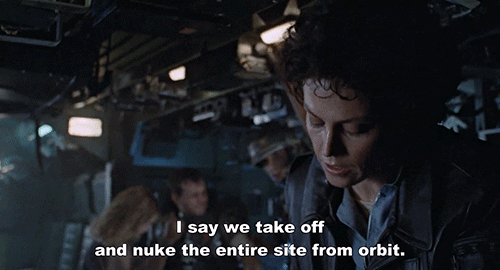
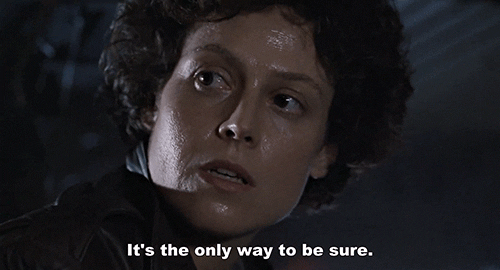

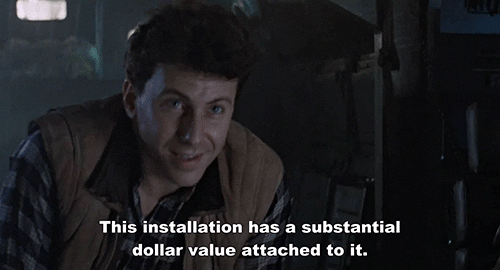
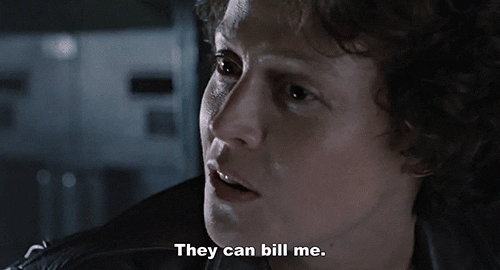
In times of trouble
Ellen Ripley comes to me
Speaking words of wisdom
Nuke the entire site from orbit, it’s the only way to be sure.
I need to rewatch this movie.
Movie Review: Steve Coogan drags his shallow, fame-crazed Alan Partridge into theaters
firehoseSteve Coogan beat

Steve Coogan’s fictional disc jockey/chat-show host/all-purpose inept broadcaster, Alan Partridge, has by now enjoyed a longer career than many non-fictional celebrities in his field. Coogan has played Partridge in a variety of incarnations, only now getting around to a feature-film version after more than two decades of radio and TV appearances. The unifying characteristic of Partridge’s work across media is a thin veneer of professionalism covering a general lack of substance or even ability.
Alan Partridge, the character’s very funny first feature, at least finds him at an appropriate level, eking out a modest but comfortable life as a DJ in Norwich, England. His day-to-day consists of asking his listeners inane call-in questions, containing his disdain for on-air sidekick, Simon (Tim Key), and assigning menial tasks to his assistant, Lynn (Felicity Montagu). When a multinational conglomerate acquires his station and attempts to rebrand it, Partridge ...
amygloriouspond: I got these nifty pens. attn...
firehose#3 is me after four hours of editing


















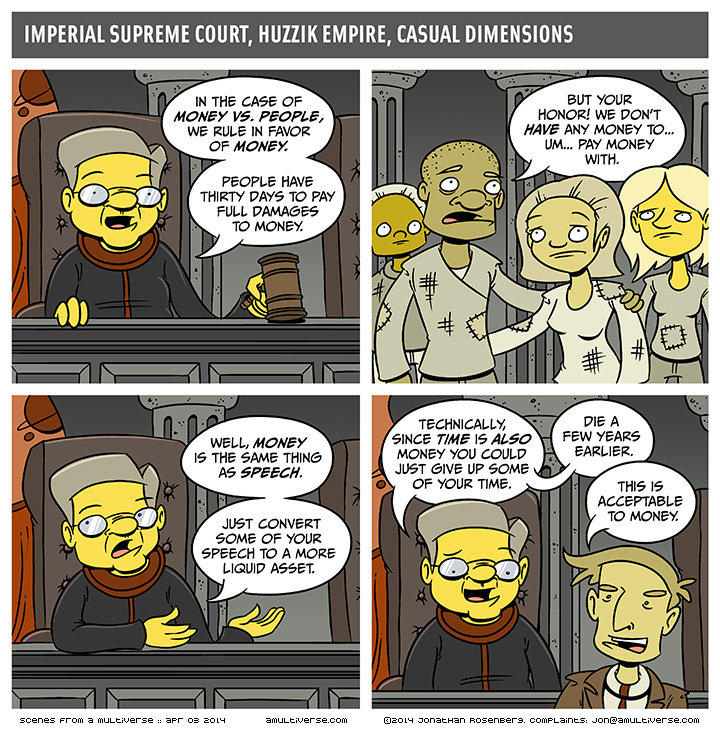
![goat-wishes[1]](http://amultiverse.com/wp-content/uploads/2014/02/goat-wishes1-450x340.png)

